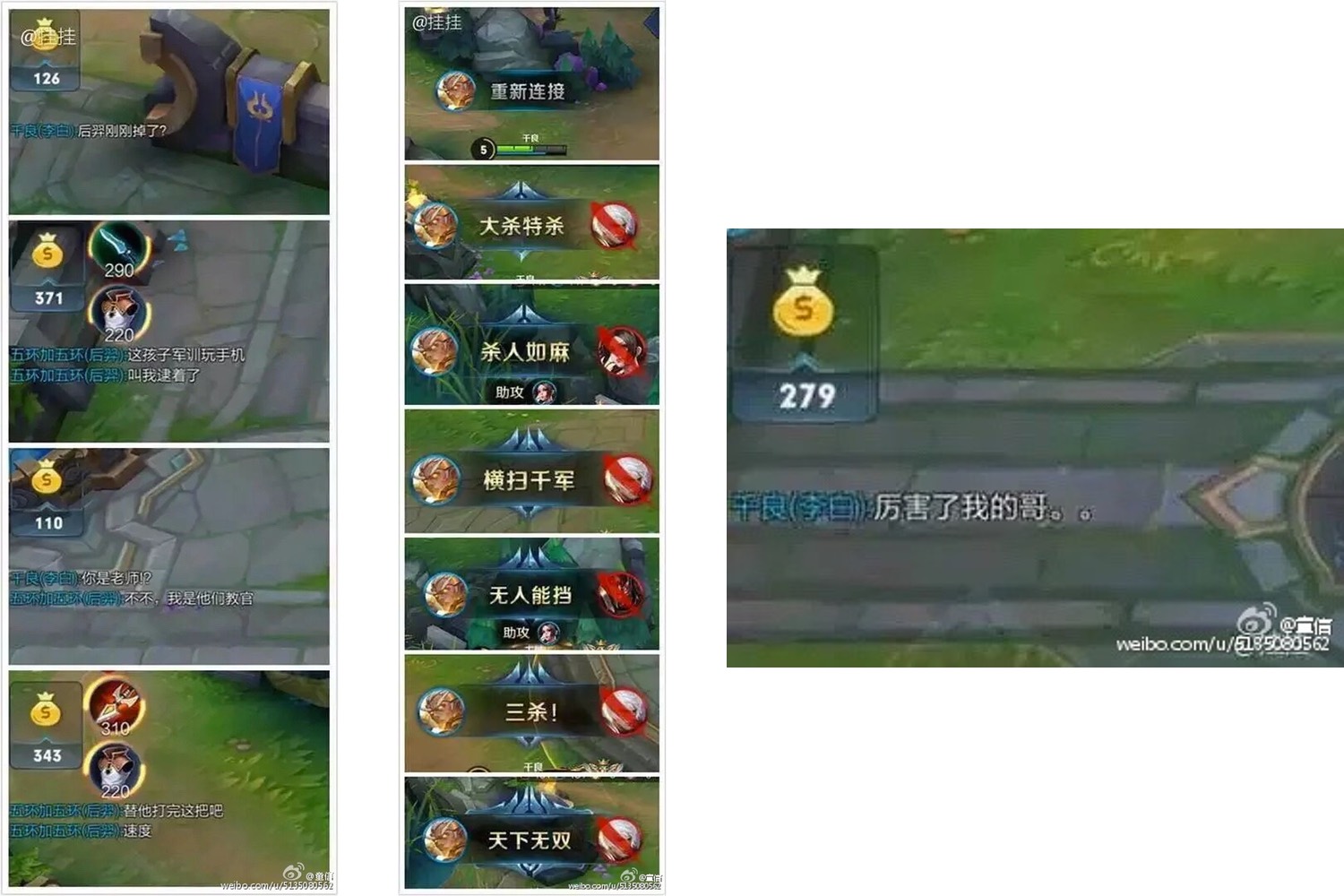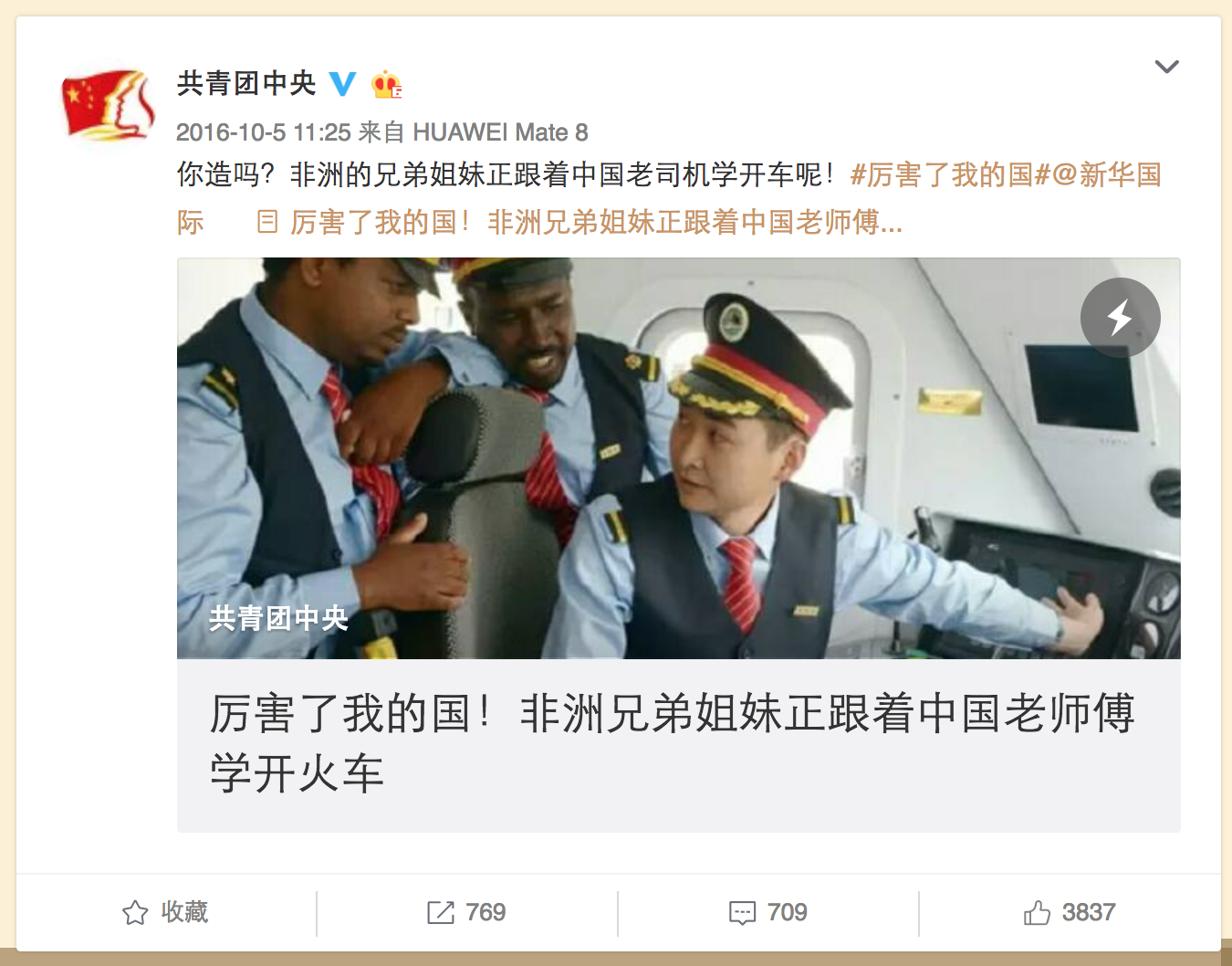‘Amazing China,’ a documentary extolling Xi Jinping, is the movie that officials want people to love

https://www.youtube.com/watch?v=Ta65Bb8pEbA
“This is our great homeland. This is the new era. This is the magnificent painting of the people’s livelihood.”
So it’s said in the trailer for Amazing China, a 90-minute documentary that presents the nation’s achievements over the past five years since Xi Jinping assumed office in 2012. The trailer shows clips of China’s famous high-speed rails, bridges, dams, satellites, and aircrafts (the C919, for instance, developed by Chinese aerospace manufacturer Comac), along with its people. The documentary was produced by China Central Television (CCTV) and China Film Co., Ltd., and released on March 2, and while it has won neither critical nor popular support, officials appear to love it.
~
While the English name of the film is rather straightforward, the Chinese title — 厉害了, 我的国 (lìhàile, wǒ de guó, roughly translated as “Bravo, My Country”) — has a more complicated backstory.
The name derives from 厉害了, 我的哥 (lìhàile, wǒ dí gē) — “bravo, my brother,” or as I like to translate it in the English vernacular, “Sweet, bro” — a phrase that gained popularity thanks to Kings of Glory, a mobile game by Tencent that went viral. As the story goes, a military officer confiscated the phone of a student who was playing Kings of Glory during training. The officer finished the game on the student’s phone. Other players, duly impressed by the officer’s skills, complimented him — sometimes with a tinge of sarcasm — with the phrase, “Bravo, my brother.”

For whatever reason, the words caught on, and it’s been used as online slang ever since — though often ironically, with what amounts to a smirk.
Since the Mandarin pronunciations for “brother” (哥 gē) and “country” (国 guó) are similar, official social media accounts of several state-owned media companies developed a seeming obsession with the phrase 厉害了, 我的国 — “Bravo, my country.” Of course, their use of the phrase is with absolute earnestness.
On October 5, 2016, the official Weibo account of the Communist Youth League posted a link to an article with this accompanying text: “Did you know? Our African friends are learning how to drive a train from Chinese drivers!” The image was tagged, “Bravo, my country.”

Movie star Jackie Chan even recorded a song that debuted on a CCTV-2 TV show by the same name:
https://www.youtube.com/watch?v=kLigM2xhmU0
Bravo, my country
I wouldn’t be so happy without you
Bravo, my country
Beautiful China will be built with love
The nation of the future cheers me up
We are singing the song of the new era
With this context, it should be no surprise that Amazing China is favored by the politicians currently meeting in Beijing. The film has been a hot topic among delegates at the Two Sessions. “We think the documentary is very good, and we can see a lot from the movie,” said Dong Mingzhu 董明珠, China’s most influential businesswoman, who serves as the chairwoman of Gree Electric Appliances and is a delegate of the National People’s Congress. “Since the 18th Party Congress, we have achieved a lot of great results in technological development. As we followed President Xi on the ‘One Belt, One Road’ initiative, we began to have the manner and pride of a powerful nation.”
By March 10, eight days after its premiere, Amazing China had become the country’s highest-grossing documentary ($48.8 million as of March 16), surpassing the previous record holder, Twenty Two 二十二, a 2015 documentary about Chinese comfort women during the Second Sino-Japanese War. As of now, the movie has a rating of 9.6/10 on Maoyan.
But many would argue that the data does not reflect the actual popularity of the film. Chinese administrators have reportedly asked movie theaters to arrange at least two screenings per day, one in the morning and one in the afternoon, according to China Digital Times (link in Chinese). Online users have also reported that certain public schools and institutions are requiring students and employees to watch the documentary in theaters.
In contrast to the high user rating on Maoyan, Amazing China has received an exceptionally low rating on IMDB: 1/10. As the movie has only been screened in China, most of the reviews have been from English-speaking Chinese viewers. Among the 74 written reviews, 65 have given a one-star rating. Following China’s constitutional amendment that removes the term limit clause, some reviewers satirically called Chinese President Xi Jinping an “emperor.”
The low rating isn’t merely due to politics, however. Wolf Warrior 2, a 2017 action movie directed by Wu Jing featuring a Chinese soldier saving African workers from local military rebels, has a 6.3 rating. Operation Red Sea, a more recent thriller about the People’s Liberation Army battling terrorism, received an above-average rating of 7.6.
On Douban Movie, a film rating database in China, the film’s “user rating” score has been concealed, replaced instead by a so-called “media rating” of 8.5/10. The website does not specify the source of the rating, though it features a collection of written reviews from several media outlets, including state-owned publishers such as Xinhua News and the People’s Daily.
In 2011, Douban Movie reportedly also disabled user reviews for Beginning of the Great Revival, a film documenting the founding of the Chinese Communist Party — a movie that also received overwhelmingly negative reviews. On IMDB, the movie received a 2.5 rating. The same thing happened with The Founding of an Army, a 2017 movie about the establishment of the People’s Liberation Army, which has an IMDB rating of 3.4.





